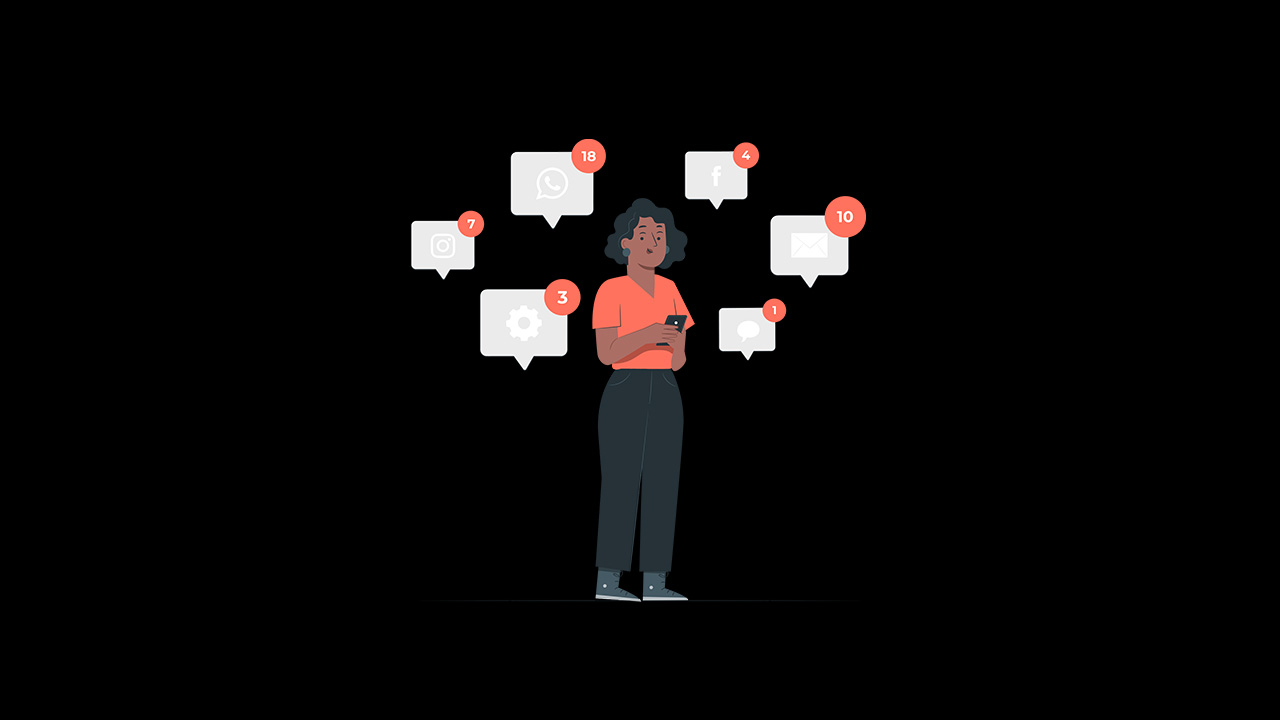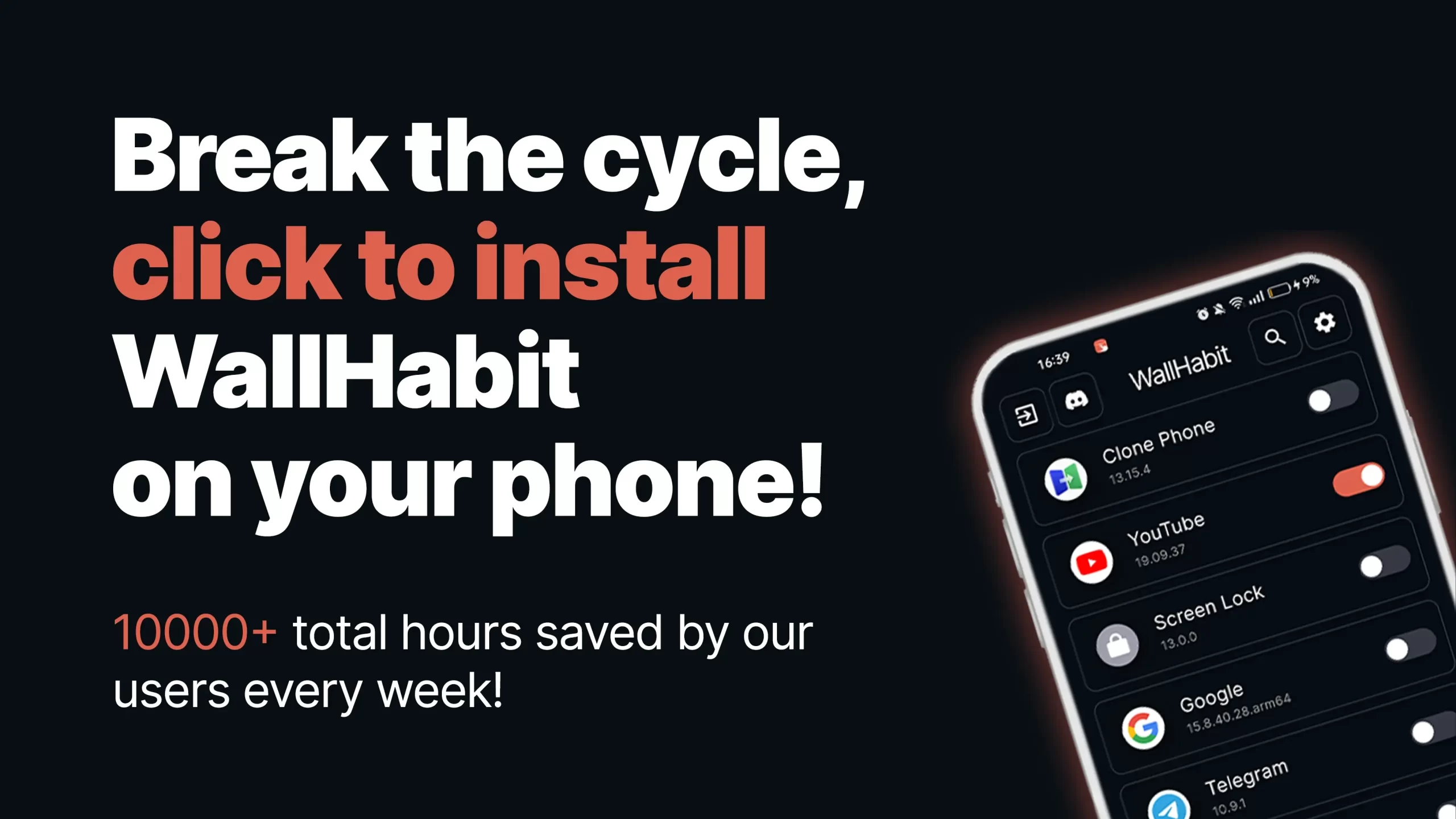Social media has become a significant part of our lives. From morning until night, people are checking their phones for the latest updates, likes, comments, and shares. But have you ever wondered how social media keeps you addicted? These platforms are intentionally designed to keep us hooked. This post explores the mechanics behind this addiction, the signs of social media addiction, its impact on productivity, and ways to mitigate its negative effects.
3 Signs of Social Media Addiction
Understanding social media addiction starts with recognizing its signs. Here are three key indicators:
- Excessive Time Spent on Social Media: If you find yourself spending hours scrolling through your feeds without realizing it, you might be addicted. This behavior often leads to neglecting other important activities, like work, study, or spending time with family and friends.
- Constant Checking for Updates: Another sign is the need to constantly check your phone for new notifications. This compulsion can disrupt your day-to-day life, leading to decreased productivity and increased anxiety.
- Negative Impact on Mental Health: Addiction to social media can also affect your mental health. Feelings of anxiety, depression, and loneliness are common among heavy users. The constant comparison with others’ highlight reels can lead to a distorted self-image and low self-esteem.
Understanding how social media keeps you addicted is the first step toward breaking the cycle. By being aware of how much time you spend on these platforms and how it affects your life, you can begin to take control and make positive changes.
Why Social Media Is Bad for Your Productivity
Social media might seem like a harmless distraction, but it can severely impact your productivity. Here’s how:
How Social Media Affects Student Productivity?
Students are particularly vulnerable to the distractions posed by social media. During study sessions, even a quick glance at notifications can lead to prolonged periods of inactivity. This disrupts concentration and hampers the ability to retain information. Studies show that students who frequently use social media while studying tend to have lower grades compared to their peers who stay focused on their work.
Additionally, the pressure to keep up with social media trends can take a toll on students’ mental health, further diminishing their academic performance. The constant need to check updates and engage with online communities is a key example of how social media keeps you addicted, reducing the time available for meaningful study and relaxation.
For working professionals, social media can be just as detrimental. Continuous interruptions from social media notifications can break the flow of work, leading to reduced efficiency and lower quality of output. This can create a cycle of procrastination, where individuals put off important tasks to engage with social media, only to find themselves more stressed and overwhelmed later on.
Does Deleting Social Media Improve Mental Health?
Given the negative impact of social media on mental health, many wonder if deleting these apps altogether is the solution. While it can lead to immediate improvements in well-being, it’s not always a feasible option for everyone. Many people rely on social media for work, staying in touch with loved ones, or as a source of news and information.
Alternative of Deleting Social Media
Instead of deleting social media, consider implementing strategies to limit its use. One effective method is using commitment devices like WallHabit. WallHabit offers several features to help reduce screen time and regain control over your digital life.
Using WallHabit to Disable Reels
One of the most addictive features of social media platforms is short video content like reels and shorts. WallHabit allows you to disable these features, making it easier to avoid mindless scrolling. By blocking access to this type of content, you can significantly reduce the time spent on social media and focus on more meaningful activities.
Block the Entire App with WallHabit
For those who struggle with self-control, WallHabit offers a “hold to unlock” feature. This feature places apps behind a virtual wall that requires you to hold down a button for a set period to access them. This extra step forces you to think twice before opening the app, helping to break the habit of mindlessly checking social media.
The Benefits of Reducing Social Media Use
Reducing social media use can lead to numerous benefits. Improved mental health is one of the most significant. By limiting exposure to the often unrealistic portrayals of life on social media, you can reduce feelings of inadequacy and boost your self-esteem. You’ll also find more time to engage in activities that promote well-being, such as exercising, reading, or spending quality time with loved ones.
Another benefit is increased productivity. Without the constant distraction of social media, you can focus better on tasks, leading to higher efficiency and better performance at work or school. This highlights how social media keeps you addicted by drawing your attention away from your priorities—but also how breaking free can help you reach your goals.
Moreover, reducing social media use can improve sleep quality. Excessive screen time, especially before bed, can interfere with sleep patterns. By cutting down on social media, you can establish healthier bedtime routines and enjoy more restful sleep.
Conclusion
Social media is an integral part of modern life, but it comes with its drawbacks. Recognizing the signs of addiction and understanding its impact on productivity and mental health is crucial. By learning how social media keeps you addicted, you can take intentional steps to manage its influence. While deleting social media altogether might not be practical for everyone, using tools like WallHabit can help reduce its usage effectively.
By taking control of your social media habits, you can improve your mental health, boost productivity, and enjoy a more balanced and fulfilling life.

